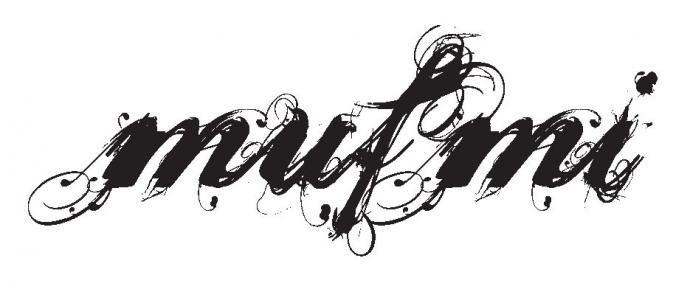
Mufmi

Mufmi
mufmi Dance Theatre contemporary dance group that has been active inWarsaw for more than 20 years (founded in 1995 and formerly known as Dystans Dance Theatre). In 2012, Anna Piotrowska the leader of mufmi moved from Warsaw to Bytom. Since then, Aleksandra Bożek-Muszyńska a long-standing member of mufmi took over the role of the coordinator for artistic issues. Aleksandra Bożek-Muszyńska is mufmis dance instructor and choreographer, she also works as an independent performer active mainly in the field of improvisation. Initially, mufmi was co-operating closely with Club of the Warsaw Garrison Command and the district of Mokotów. For over two years, mufmi has been supported by the Mazovia Institute of Culture (MIK). Over the years of mufmi activity, nearly 70 people have developed their talents and become active personalities in the field of dance, theatre, performance, visual arts, social and cultural activities, or simply as active audience members. Most of the former mufmi students and members are currently professional dancers and actors.
mufmi means both a type of creative activity and a brand developed by Anna Piotrowska within the field of dance and dance theatre. What is important in Piotrowskas creative work is her openness to creation and process. The specific artistic language which the artist discovers and uses is derived from dance, theatre, gesture, absurdity and abstraction.
One of the groups most famous performances is 4 roses 4 Lucienne inspired by Roland Topors short story, the performance received the main prize winner at the 15th International Presentations of Contemporary Dance Forms (currently: Contact Zone) in Kalisz (2007) for political statement on the treatment of a womans body in the Polish society, for stage expression means, balancing on the edge of irony and seriousness, skills and limitations of the body. Other performances which are worth mentioning include: Szafosza (formerly Dystans Theatre), Gemini (duo by Anna Piotrowska/Patrycja Dońska), Bóg 8 Dnia, Usługi płatne, czyli cała Polska plecie dzieciom, Puste miejsca czy fall(ing) ceil(ing (presented at the Polish Dance Platform 2010 and within the framework of the International Festival of Performing Arts. CROSSROADS 2011.
The group has participated in numerous dance festivals in Poland, including Warsaw (Warsaw Dance and Movement Evening, Young People Artistic Review PUPA), Gdańsk (former festival Dance Explosions), Lublin (International Dance Theatre Festival), Kalisz (International Presentations of Contemporary Dance Forms) and Bytom (International Contemporary Dance Conference and Performance Festival), and in other cities. The theatre was granted numerous awards 4 roses (apart from the Kalisz award) has won jury prizes at the 2006 Polemiqi (categories: the creation of genuine stage reality and the best dramatist for Anna Piotrowska). Moreover, the performance was awarded individual jury members certificates – from Tamara Mc Lorg for creation of the performance, for the group and Tamas Halasz for Anna Piotrowska for the sense of humour.
Moreover, the group is active in city spaces (including the Atak Przestrzeni action, which took place during Polemiqi) and adapts non-scenic areas, ex.: trans marszałkowska (Marszałkowska Street Trance).
The group also created well-received performances for children, such as Roztańczona bajka, Świnki trzy, the best known is Brzechwa_ruszony (presented at the 10th International Children and Youth Theatres Festival Korczak, 2006), this is a dance story inspired by the poems of Jan Brzechwa.
The works of mufmi company are marked by grotesqueness of the presented world and an original sense of humour, but most of all by dramatization and stylization of gesture and movement. These are the main features of the group’s artistic language. Within the aesthetics, the issues raised by the group are quite various. Without doubt, one of the groups permanent motives is femininity which is also a natural consequence of the homogeneous, female character of the group and in particular its cultural and social conditions and clichés. Everything that is related to a specific stage setting of the gender, body and movement belongs here as well. Dramatization and precise rules of theatre narration, being of course constantly redefined and re-created, are the most important features of mufmi theatre.